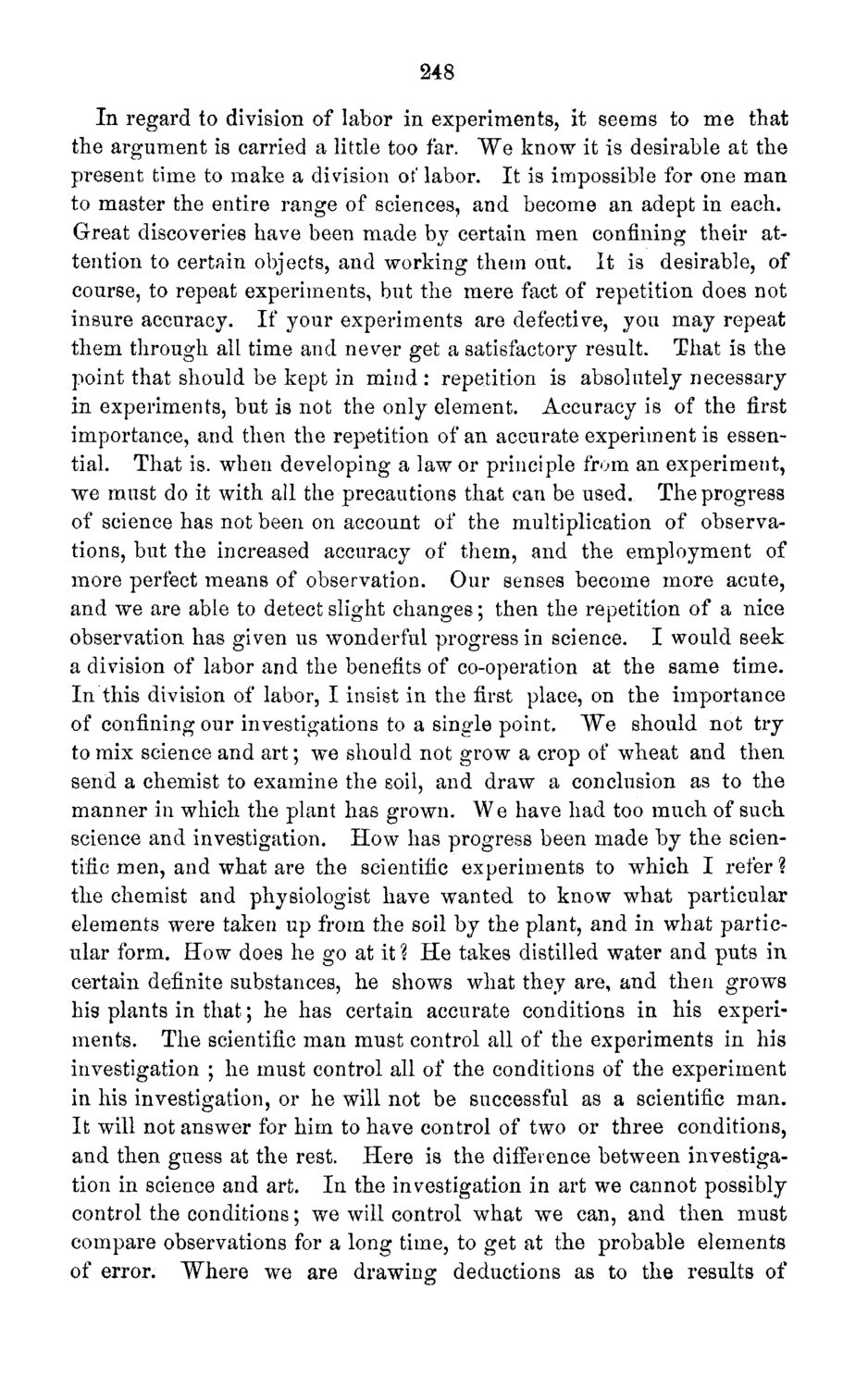| |
| |
Caption: Board of Trustees Minutes - 1871
This is a reduced-resolution page image for fast online browsing.

EXTRACTED TEXT FROM PAGE:
248 In regard to division of labor in experiments, it seems to me that the argument is carried a little too far. We know it is desirable at the present time to make a division of labor. It is impossible for one man to master the entire range of sciences, and become an adept in each. Great discoveries have been made by certain men confining their attention to certain objects, and working them out. It is desirable, of course, to repeat experiments, but the mere fact of repetition does not insure accuracy. If your experiments are defective, you may repeat them through all time and never get a satisfactory result. That is the point that should be kept in mind : repetition is absolutely necessary in experiments, but is not the only element. Accuracy is of the first importance, and then the repetition of an accurate experiment is essential. That is. when developing a law or principle from an experiment, we must do it with all the precautions that can be used. The progress of science has not been on account of the multiplication of observations, but the increased accuracy of them, and the employment of more perfect means of observation. Our senses become more acute, and we are able to detect slight changes; then the repetition of a nice observation has given us wonderful progress in science. I would seek a division of labor and the benefits of co-operation at the same time. In this division of labor, I insist in the first place, on the importance of confining our investigations to a single point. We should not try to mix science and art; we should not grow a crop of wheat and then send a chemist to examine the soil, and draw a conclusion as to the manner in which the plant has grown. We have had too much of such science and investigation. How has progress been made by the scientific men, and what are the scientific experiments to which I refer? the chemist and physiologist have wanted to know what particular elements were taken up from the soil by the plant, and in what particular form. How does he go at it? He takes distilled water and puts in certain definite substances, he shows what they are, and then grows his plants in that; he has certain accurate conditions in his experiments. The scientific man must control all of the experiments in his investigation ; he must control all of the conditions of the experiment in his investigation, or he will not be successful as a scientific man. It will not answer for him to have control of two or three conditions, and then guess at the rest. Here is the difference between investigation in science and art. In the investigation in art we cannot possibly control the conditions; we will control what we can, and then must compare observations for a long time, to get at the probable elements of error. Where we are drawing deductions as to the results of
| |